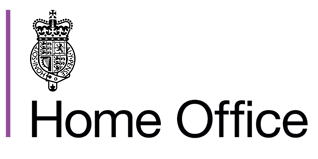PRESS RELEASE : International Day for the Elimination of Violence against Women 2022 – UK statement to the OSCE [November 2022]
The press release issued by the Foreign Office on 24 November 2022.
Ambassador Neil Bush stresses that there has been an alarming increase in reports of gender-based violence since Russia’s invasion of Ukraine.
Thank you, Mr Chair.
Gender-based violence remains one of the most systemic and widespread human rights violations of our time, requiring urgent action.
One in three women will experience physical or sexual violence in their lifetime, according to data from the World Health Organisation. This violence often starts devastatingly early: one in four young women, who have been in a relationship, will experience violence by an intimate partner by their mid-twenties. Violence is often worst among the hardest to reach. Women with disabilities in developing countries are two to four times more likely than other women to experience violence.
There is also clear evidence that gender-based violence increases in scale and severity in conflict situations. An estimated 20 to 30% of women and girls have experienced non-partner sexual violence in conflict-affected settings.
Mr Chair, in this context it is important to underline the particularly horrific impact Russia’s illegal invasion of Ukraine is having on women, girls and marginalised groups. There has been an alarming increase in reports of gender-based violence since Russia’s invasion – including conflict-related sexual violence in temporarily Russian controlled areas; sexual exploitation, abuse and harassment; and economic abuse.
Both Moscow Mechanism reports document acts of sexual violence carried out by members of the Russian Armed Forces. As I said at yesterday’s joint FSC/PC meeting, this evidence exists because of the brave testimonies of survivors, who, by telling their stories, break down stigma and enable justice. The use of sexual violence as a weapon is a war crime. It is vital that we hold those individuals responsible to account.
Women are disproportionately affected by conflict, and are at far greater risk of gender-based violence, including conflict related sexual violence. Despite this, in times of war, women are often the first responders to a crisis, stepping up to serve their communities. This is true in Ukraine, where women have been instrumental to the humanitarian, political, and security efforts in the defence of their country.
It is vital that we, the international community, end impunity for sexual violence, which threatens the lives and wellbeing of women and girls, and prevents them from accessing opportunities that are fundamental to freedom and development – namely, education, healthcare, and jobs.
The UK is committed to providing global leadership towards ending such violence. Through the What Works to Prevent Violence programme, the UK has pioneered prevention approaches around the world that have shown reductions in violence of around 50%. In 2021, the UK launched a successor programme responding to the urgent need to scale up gender-based violence prevention efforts, using evidence to drive more effective international action. The UK has also led work internationally focused on ending child marriage, and tackling sexual exploitation, abuse and harassment in the aid sector.
Mr Chair, conflict-related sexual violence continues to shatter lives and scar communities around the world. That is why on 28-29 November, the UK will host the International Preventing Sexual Violence in Conflict Initiative (PSVI) Conference. The Conference marks an important step towards galvanising global support for further action to tackle sexual violence in conflict – promoting prevention, justice and support for survivors. During the Conference, participating states will make a number of national commitments. These include support for key initiatives, such as the Murad Code, and the Call to Action to Ensure the Rights and Wellbeing of Children Born of Sexual Violence in Conflict.
Mr Chair, gender-based violence is a global challenge, and requires a global response. Despite the scale of the problem, gender-based violence is preventable. It is essential that we reaffirm our commitment to end this violence, and support all women and girls in fully realising their potential.
The UK is committed to making this happen.
Thank you, Mr Chair.



